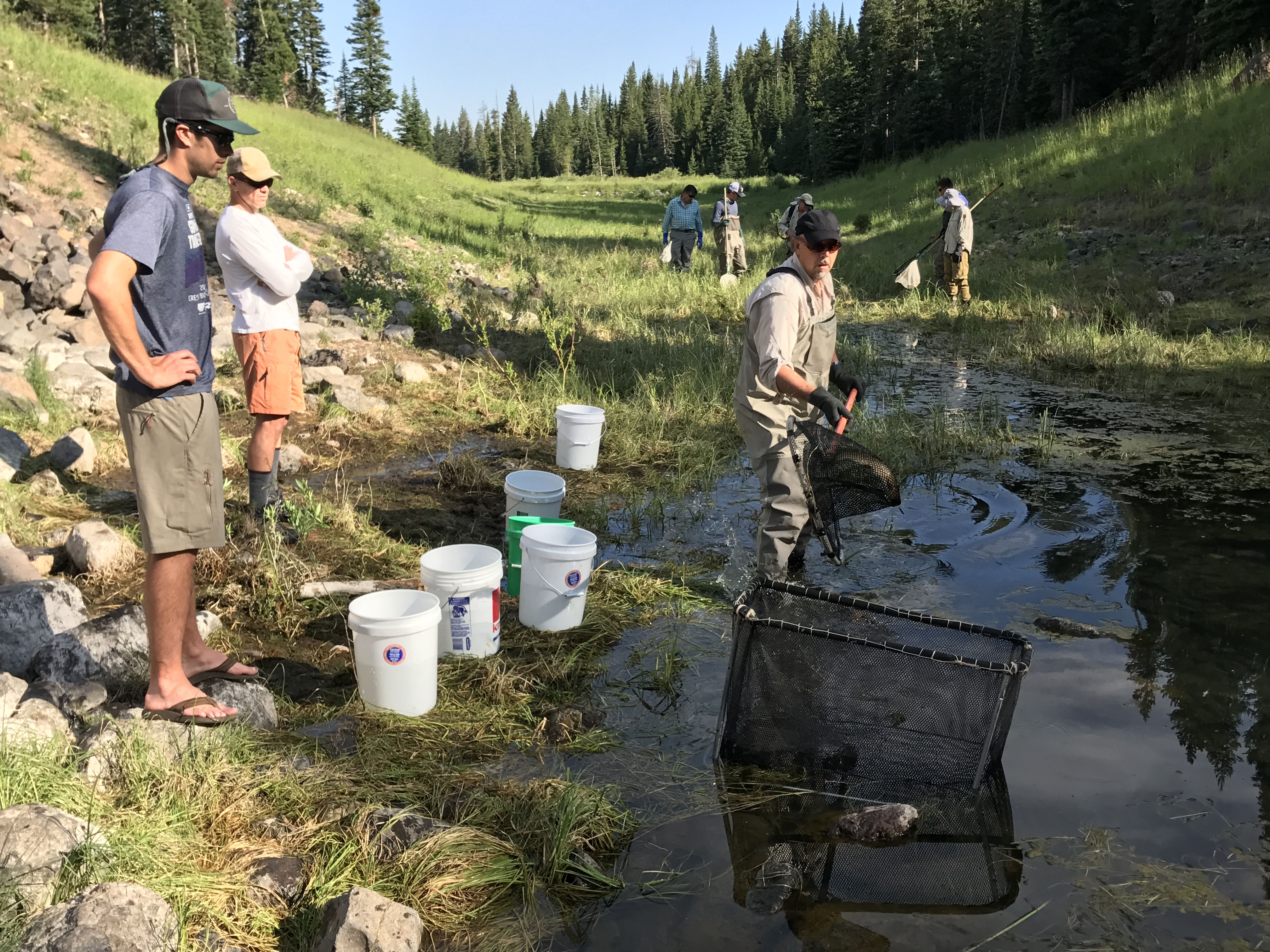
Yesterday, we made a post about a project to save struggling Cutthroat in Hyalite Creek. We are happy to say the project was an overwhelming success.
Roughly 6 volunteers from the surrounding Bozeman area gathered at FWP headquarters at 8am this morning. After coffee and introductions, we jumped in cars and drove up to Hyalite Reservoir with a team of FWP members. Upon arriving at the reservoir, we walked down the steep hill below the dam and assessed the situation with the help of the FWP technicians and team members. Roughly 10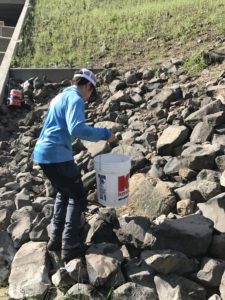 0 trout seemed to be trapped directly below the dam with minimal water flowing over the dam. The FWP team opted to first test the temperature of the water to gauge the proper approach to the capture and transportation of these fish. The water proved a cool 58 degrees; because the water temperature was not too high, the FWP technician decided electroshocking, netting, and transporting the trout in buckets was the optimal approach. Waders were donned and 4-5 people hopped in the pool behind an FWP member with an electroshocking backpack. As the electric current penetrated the water, stunned Cutthroat, Brook Trout, and a few Rainbow Trout began to rise to the surface and were immediately netted and placed in a netted enclosure set up in the pool. From the enclosure, the fish were placed into five-gallon buckets and transported up the hill to the reservoir. After being dumped into the reservoir, the fish recovered from the electric current that had temporarily paralyzed them. Upon recovery, the fish swam away into the depths of the reservoir.
0 trout seemed to be trapped directly below the dam with minimal water flowing over the dam. The FWP team opted to first test the temperature of the water to gauge the proper approach to the capture and transportation of these fish. The water proved a cool 58 degrees; because the water temperature was not too high, the FWP technician decided electroshocking, netting, and transporting the trout in buckets was the optimal approach. Waders were donned and 4-5 people hopped in the pool behind an FWP member with an electroshocking backpack. As the electric current penetrated the water, stunned Cutthroat, Brook Trout, and a few Rainbow Trout began to rise to the surface and were immediately netted and placed in a netted enclosure set up in the pool. From the enclosure, the fish were placed into five-gallon buckets and transported up the hill to the reservoir. After being dumped into the reservoir, the fish recovered from the electric current that had temporarily paralyzed them. Upon recovery, the fish swam away into the depths of the reservoir.
This process was repeated until the majority of the fish had been transferred from their shallow-water home into the expansive reservoir. Emaciated, struggling trout with little food and an inadequate home now had plentiful food and millions of gallons of water at their fin(ger)tips.
Altered ecosystems can leave wildlife stranded in unnatural environments. In this case, a man-made dam caused an unhealthy environment in which wild fish suffered from a shortage of water and food. Humans also have the power to restore, however, as we proved today. So as people continue to populate our beautiful Montana home, it’s hugely important that people also continue to restore, protect, preserve, conserve, and encourage awareness. Sometimes we’re the only voice animals have.
Thanks to all who donated their Friday morning to help save these fish! The project wouldn’t have been possible without you. See photos from the morning below.
0
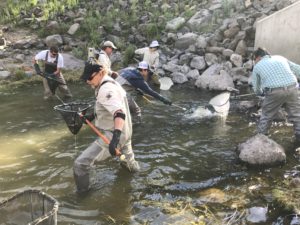
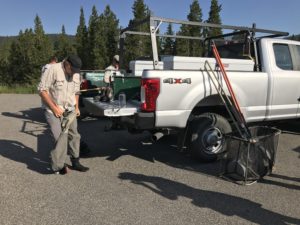
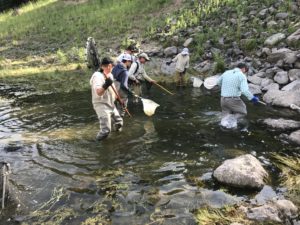

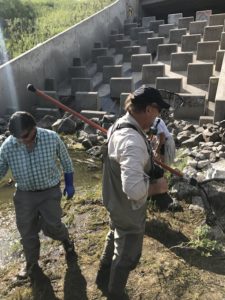
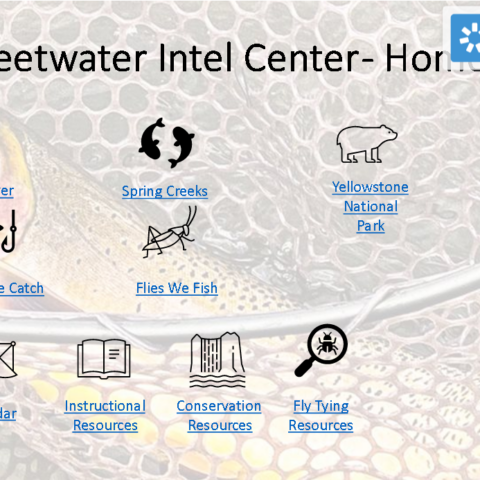
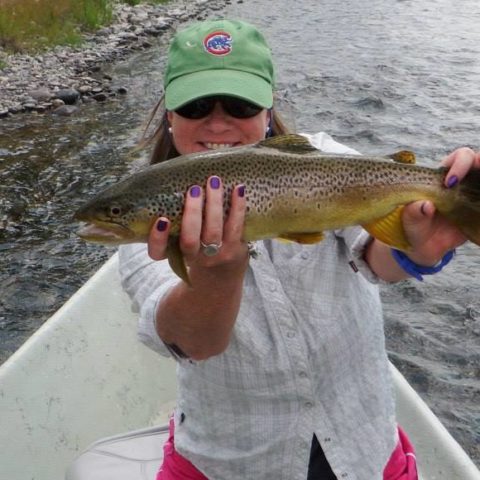
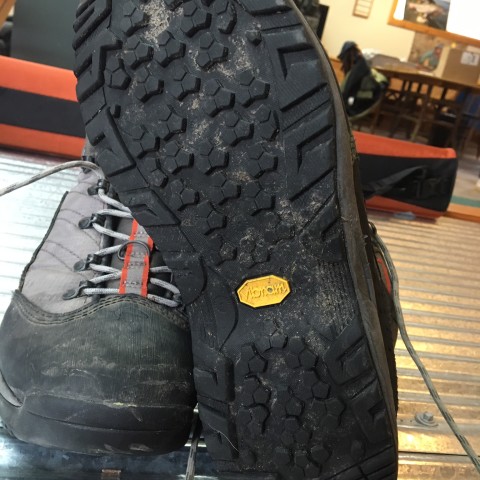

Leave a Reply
You must be logged in to post a comment.